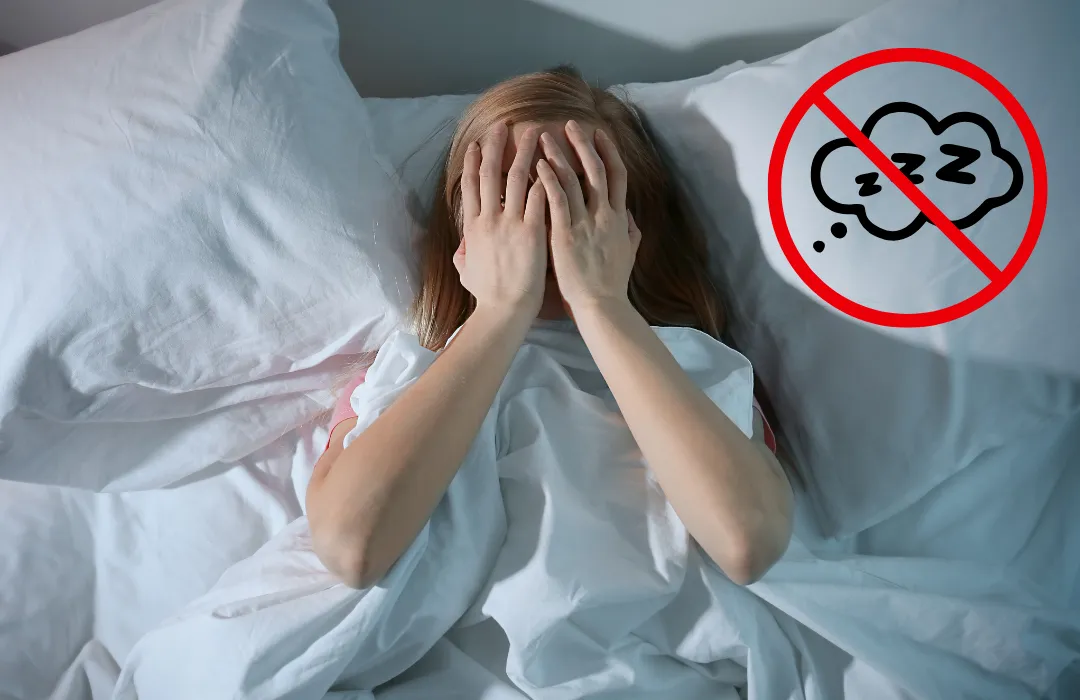
Why You Wake Up Between 2 and 4 AM
Waking Between 2–4 AM? Here’s What Your Body Might Be Trying to Tell You
Waking in the early morning hours—between 2 and 4 AM—and feeling wide awake or restless can be exhausting week after week. You may lie there feeling anxious, wired, or simply unable to fall back asleep. Over time, this pattern leaves you dragging through the day, craving sugar, feeling foggy, or emotionally frayed.
Standard sleep tips like blackout curtains or herbal teas may not help, because this pattern often signals physiological imbalances in your liver metabolism, overnight blood sugar regulation, or stress hormone rhythms. Let’s break it down.

1. Your Liver’s Late-Night Duty
Your liver is a metabolic powerhouse with its own circadian rhythm. Between roughly 1 and 3 AM, it’s busy processing toxins, managing hormones, and fine-tuning your body’s chemistry.
If the liver is overwhelmed—due to fatty buildup (MASLD), toxin exposure, poor nighttime eating patterns, or even shift work—it can disrupt your sleep. Research shows that people with metabolic-associated steatosis often experience fragmented sleep, even if total sleep time isn’t dramatically lower than average.
Chronic sleep deprivation can even reprogram liver gene expression tied to circadian rhythms and metabolism. In simpler terms: when your liver’s rhythm is off, your body’s rhythm is off, waking you up in the night.
2. Blood Sugar Rollercoaster
Your body tightly controls blood sugar overnight. When it dips too low or spikes unexpectedly, it can trigger wakefulness:
Hypoglycemic wake-ups: If blood sugar crashes mid-sleep—due to skipped dinner or poor metabolic flexibility—your body jolts awake with adrenaline and glucagon, often causing sweating, palpitations, or unease.
Dawn phenomenon: Before dawn, hormones like cortisol, growth hormone, and catecholamines signal the liver to release glucose. In people with insulin resistance, this can create subtle spikes and early morning wakefulness.
Tools like continuous glucose monitors (CGM) can help identify whether wake-ups are caused by reactive rebound (Somogyi effect) or dawn hormone surges.
3. Cortisol and Stress Hormones
Sleep relies on your stress-response system and circadian rhythm staying in sync. Normally:
Cortisol is lowest around midnight
It rises slowly during the night
Peaks in the early morning to help you wake naturally
Chronic stress, late-night stimulation, or circadian disruption can cause a premature cortisol spike between 2 and 4 AM, triggering wakefulness. Cortisol balance is just as vital as melatonin for deep, restorative sleep.
Sleep Cycles and Conditioned Wakefulness
Even without physiological triggers, our brains naturally cycle through lighter sleep stages in the early morning. For those under stress or with conditioned insomnia, the brain can “train” itself to wake at 3 AM, even when there’s no obvious reason.
Practical Strategies for Deep, Restorative Sleep
Here’s a toolbox for staying asleep through the 2–4 AM window:
Support your liver: Keep dinner moderate, avoid heavy or fatty meals late, and prioritize fiber, antioxidants, and greens earlier in the evening.
Balance evening glucose: Include protein and healthy fats at dinner; a small bedtime snack (nuts, cheese, lean protein) can help prevent nocturnal drops.
Stabilize stress hormones: Wind down early, limit screens and bright light, and practice calming breathwork or journaling before bed.
Honor circadian timing: Aim to fall asleep earlier (ideally before midnight), and keep consistent sleep/wake times—even on weekends.
Track and test: Persistent wake-ups may warrant testing:
Liver panel (ALT, AST, GGT) or imaging
CGM or overnight glucose checks
Salivary or serum cortisol rhythm testing
Light and food timing: Morning sunlight helps reset your internal clock, and eating within consistent windows (“chrononutrition”) supports circadian alignment.

Your Body’s Whisper for Balance
Waking between 2–4 AM isn’t random. It’s your body signaling where support is needed—whether in liver metabolism, glucose regulation, cortisol rhythms, or sleep habits. Addressing the root causes, rather than relying on quick fixes, can restore deep, restorative sleep.
At Bee True Integrative Medicine, we guide you in uncovering these imbalances and creating a plan that supports your unique physiology—so you can finally reclaim nights of peaceful, uninterrupted rest.
References
Reinke, H., & Asher, G. (2016). Circadian clock control of liver metabolic functions. Gastroenterology, 150(3), 574–580.
Liu, S., Zhuo, K., Wang, Y., Wang, X., & Zhao, Y. (2024). Prolonged sleep deprivation induces a reprogramming of circadian rhythmicity with the hepatic metabolic transcriptomic profile. Biology, 13(7), 532.
Schaeffer, S., et al. (2024). Significant nocturnal wakefulness after sleep onset in patients with MASLD. Network Physiology, Article.
Schmidt, M. I., Hadji-Georgopoulos, A., Rendell, M., Margolis, S., & Kowarski, A. (1981). The dawn phenomenon: early-morning glucose rise implications. Diabetes Care, 4(6), 579–585.
Potter, G. D. M., et al. (2016). Circadian rhythm and sleep disruption: metabolic consequences. Endocrine Reviews, 37(6), 584–608.
Hirotsu, C., et al. (2015). Interactions between sleep, stress, and metabolism. Journal of Sleep Research, Article.
Verdelho Machado, M. (2024). Circadian deregulation, MASLD, and chrononutrition. Nutrients, Article.
Kovacs, M. (2025, August 6). Sleep mistakes that harm your health—and how to fix them tonight. Tom’s Guide (News article).
Verywell Mind. (2025). Keep waking up at 3 a.m.? Here’s what your body might be telling you. (News article)
Tom’s Guide. (2025). The surprising role cortisol plays in our sleep—and why it's just as important as melatonin. (News article)
